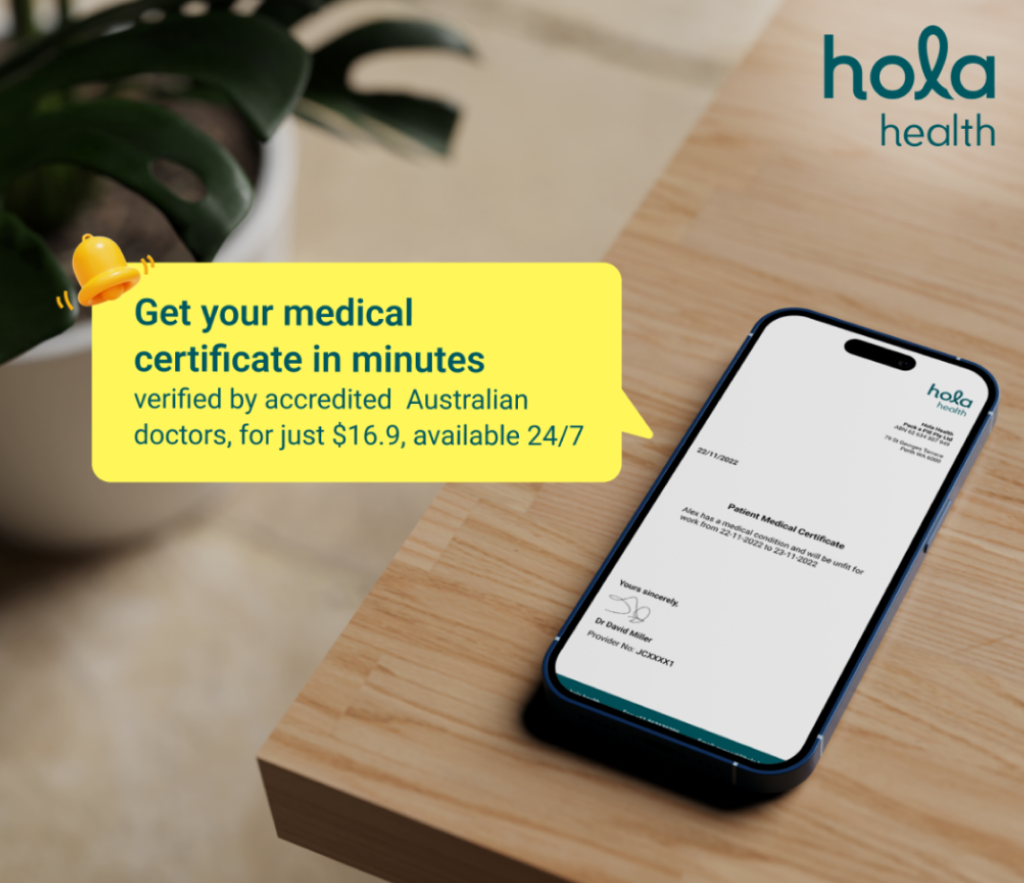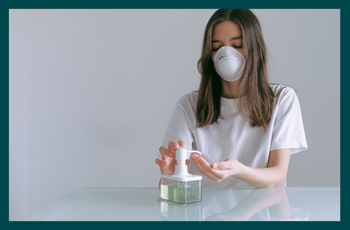- Home
- /
- Health Conditions
- /
- Whooping Cough
Whooping Cough Treatment
Tackle whooping cough with medical advice from expert health practitioners via telehealth within 15 minutes, Available 24/7 in Australia.
About whooping cough

Whooping cough, also known as pertussis, is a highly contagious respiratory infection caused by the Bordetella pertussis bacterium. In Australia, whooping cough remains a public health concern, especially for babies under 6 months, who are too young to be fully vaccinated. According to the Australian Immunisation Register (AIR) and National Notifiable Diseases Surveillance System (NNDSS), there were 3,286 cases reported nationally in 2023, a rise from previous pandemic years when social distancing reduced transmission. It starts like a common cold with a runny nose, mild fever, and sneezing, but after about a week, it progresses to severe coughing fits that may end with a “whooping” sound as the person gasps for air. These coughing bouts can be intense, leading to vomiting, exhaustion, or difficulty breathing. If you suspect whooping cough, consult a doctor immediately. Telehealth consultations can help with early advice, referrals, or prescriptions for testing and treatment.
Medically reviewed by Dr. Ammar AL-ANI, MBChB, CCBST, AMC
When to consult a doctor for whooping cough?
You should consult a doctor immediately if you or someone in your family shows signs of whooping cough (pertussis), especially if it’s a baby, young child, or pregnant woman. Key reasons to seek medical care include:
- Severe, uncontrollable coughing fits lasting for weeks
- A distinctive “whooping” sound when breathing in after a coughing spell
- Vomiting after coughing
- Signs of breathing difficulty, turning blue, or pauses in breathing (especially in infants)
- A persistent cough lasting more than two weeks, even if it started like a mild cold
- Known contact with someone diagnosed with whooping cough
What are the symptoms of whooping cough?
Whooping cough (pertussis) often starts like a regular cold but quickly develops into more serious symptoms. Here’s what to watch for:
- Runny nose, sneezing, and mild fever in the early stages
- A persistent, dry cough that gets worse over time
- Severe coughing fits that can last several minutes
- A distinctive “whooping” sound when breathing in after a coughing spell (though not everyone gets this, especially adults and babies)
- Vomiting or exhaustion after coughing
- Breathing difficulties, turning blue, or pauses in breathing (particularly in babies)
- Coughing fits at night that disrupt sleep
What are the causes for whooping cough?
Here’s a clear breakdown of the causes of whooping cough (pertussis) by group:
In adults:
- Caused by infection with the Bordetella pertussis bacteria, spread through coughs, sneezes, or close contact.
- Adults often catch it from unvaccinated children or other adults.
- Waning immunity, the whooping cough vaccine’s protection decreases over time if booster shots aren’t taken.
- Close contact with infected infants or school-aged kids increases risk.
In children:
- Direct infection from exposure to infected droplets in the air from someone coughing or sneezing.
- Often caught at school, daycare, or family gatherings.
- Occurs if childhood immunisations aren’t complete or have worn off.
In babies:
- Usually infected by parents, siblings, or caregivers who may have mild or unnoticed symptoms.
- Too young to be fully vaccinated, making them highly vulnerable.
- Close contact with unvaccinated people or those with unknown vaccination status.
Is there a vaccine for whooping cough?
Yes, there’s an effective vaccine for whooping cough (pertussis). In Australia, it’s part of the routine childhood immunisation schedule, given as the DTPa vaccine (which also protects against diphtheria and tetanus).
What are the treatments available for whooping cough?
Whooping cough (pertussis) is typically treated with a combination of medication and supportive care. Here’s what’s usually recommended:
- Medicines: Prescribed early to reduce the severity of symptoms and prevent the infection from spreading.
- Hospital care: In severe cases, especially for babies under 6 months, hospitalisation may be needed for oxygen support, monitoring, and IV fluids.
- Cough relief: While over-the-counter cough medicines aren’t effective for whooping cough, staying hydrated, using a humidifier, and resting in an upright position can ease symptoms.
- Isolation: To prevent spreading the infection, patients are advised to stay home until at least 5 days after starting the medications.
How can whooping cough be prevented?
Whooping cough (pertussis) is highly contagious, but thankfully, it’s preventable with the right precautions. Here’s how:
- Vaccination: The most effective way to prevent whooping cough.
- Pregnancy booster: Pregnant women should get a whooping cough vaccine in every pregnancy to protect their newborn in those critical early months. Find out more from your GP regarding this.
- Booster shots for adults: Especially for parents, grandparents, and carers of young children.
- Avoid contact with infected individuals
- Good hygiene practices: Such as regular handwashing, covering your mouth when coughing or sneezing, and using hand sanitisers.
- Prompt treatment and isolation: If diagnosed, start medication early and avoid public places for at least 5 days after starting treatment to stop the spread.
What are the complications of whooping cough?
Whooping cough can lead to serious complications especially in babies, young children and older adults. Babies can suffer with pneumonia, seizures, apnoea, brain damage, weight loss and dehydration. In older children and adults, it can lead to exhaustion, weight loss, hernias or fainting episodes.
What can I expect if I have whooping cough?
If you have whooping cough (pertussis), it typically starts like a mild cold with a runny nose, sneezing, mild fever, and a dry cough. Within a week or two, the cough worsens into severe coughing fits, often followed by a sharp “whoop” sound when breathing in. These episodes can leave you feeling exhausted, trigger vomiting, or disturb your sleep. In adults, the cough may linger for weeks or even months. Rest, hydration, and early treatment are key for a smoother recovery.
How can I speak to a doctor online when the GP near me is unavailable?
You can speak to a qualified online doctor through Hola Health’s 24/7 telehealth services in Australia. Seeking a telehealth consult is simple and easy. Here’s a step-by-step guide:
- Click on see a doctor from the Hola Health’s telehealth consultations page.
- Choose a consultation type, fill in your details and make the payment.
- Connect with an AHPRA-accredited health practitioner within minutes and discuss your concerns.
- If approved, you will receive medical certificates and online referrals via email and online scripts via SMS.
Can I get a prescription online through Hola Health from anywhere in Australia?
Yes, you can get a prescription online from anywhere in Australia through Hola Health’s convenient telehealth service. Our online scripts option allows you to request a prescription from an AHPRA-registered doctor without needing to visit a clinic. Simply head to the online scripts page on the Hola Health website or app, choose your consultation type, and fill in your details along with Medicare and payment information. You’ll be connected with a telehealth practitioner within minutes to discuss your medical needs. If approved, your prescription will be sent instantly via SMS, which you can fill at your local pharmacy or arrange for home delivery through an online pharmacy service.
How can I request time off from work or uni through a medical certificate online?
You can easily request time off from work or university through a medical certificate online using Hola Health’s 24/7 telehealth service in Australia. Here’s how it works:
Head to the Hola Health website or app and choose the type of certificate you need, whether it’s for personal sick leave, carer’s leave, uni extension, or multiple days off. Complete a quick, secure form with your details and payment. An AHPRA-registered doctor will review your request, and if appropriate, approve your certificate, often within 15 minutes. Your medical certificate will then be sent directly to your email, ready to submit to your workplace or university.
What type of online referrals can I get through Hola Health?
Hola Health helps you in securing a variety of GP referrals within minutes. These referrals include specialist referrals, pathology referrals, radiology referrals, blood test referrals and X-ray referrals.
How can I speak to a doctor online after-hours?
If you need to speak to a doctor after-hours, you can easily connect with a night doctor online through Hola Health’s 24/7 telehealth service. Whether it’s late at night, early morning, or on weekends, you can book a quick online doctor consultation from the comfort of your home. Request medical certificates, online scripts, referrals and more post clinic hours, on weekends or on public holidays.
How can we help?
Trusted by thousands of Aussies, Hola Health makes healthcare simple and accessible with these popular telehealth services in Australia:
- Online doctor consultations Australia, chat with licensed GPs from home, anytime.
- Get a medical certificate online 24/7 for work, uni, or carer’s leave, no waiting rooms, no hassle.
- Instant online scripts in Australia, fast, secure, and sent directly to your phone.
- Bulk-billed online mental health care plans, claim Medicare-covered sessions with psychologists and counsellors.
- GP referrals online in Australia, for specialists, blood tests, pathology, and radiology scans.
- Online pharmacy delivery Australia, have medications delivered straight to your door without visiting a chemist.
Talk to a doctor today
Instantly connect to a registered practitioner within 15 minutes from anywhere in Australia, 24/7 for:
- General consults
- New & repeat scripts
- Referrals
- Medical certificates
- Mental health plans

Access telehealth services
Doctors Brisbane | Doctors Melbourne | Doctors Perth | Doctors Sydney | Doctors near me | Doctors Canberra | Doctors Adelaide | Doctors Darwin | Doctors Hobart
After hours Doctor Brisbane | After hours Doctor Melbourne | After hours Doctor Perth | After hours Doctor Sydney | After hours Doctor Hobart | After hours Doctor Gold Coast | After hours Doctor Canberra | After hours Doctor Adelaide | After hours Doctor Darwin | After hours GP | After hours doctor
Medical certificate | Medical certificate online for work | Medical certificate for school | Medical certificate for Uni | Medical certificate for stress | Carer’s leave certificate | Medical certificate NSW | Medical certificate QLD | Medical certificate VIC | Medical certificate WA | Doctors certificate online | Multi-day Certificate | Sick certificate online | GP medical certificate | Doctors note | Telehealth medical certificate | 2-day medical certificate | Medical certificate for sick leave
Instant scripts | eScript | Online prescriptions | Online prescriptions Sydney | Online prescriptions Melbourne | Online prescriptions Perth | Online prescriptions Brisbane | Online Rx prescription
Online referrals | Blood test referral | X-Ray referral | Pathology referral | Radiology referral | Specialist referral | Gynaecologist referral | Audiology referral | Ophthalmologist referral | Paediatrician referral | Ent specialist referral | Endocrinologist referral | Dermatologist referral | Urologist referral | Gastroenterologist referral
Telehealth appointment | Online Doctor | Bulk Billing Doctors | Doctors on-demand | Instant consult | Covid antiviral | Dial a Doctor | Online GP | Doctor appointment | Bulk-billing doctors | Telehealth pricing | GP online chat | Australian doctor | Web doctor | Home doctor | 24-hour doctor















